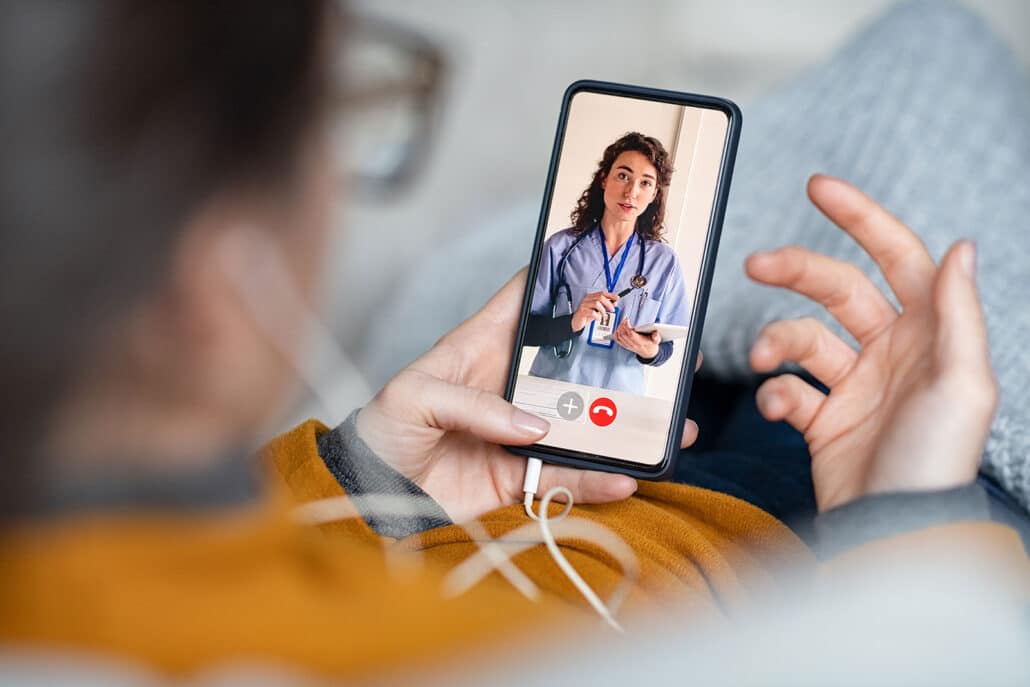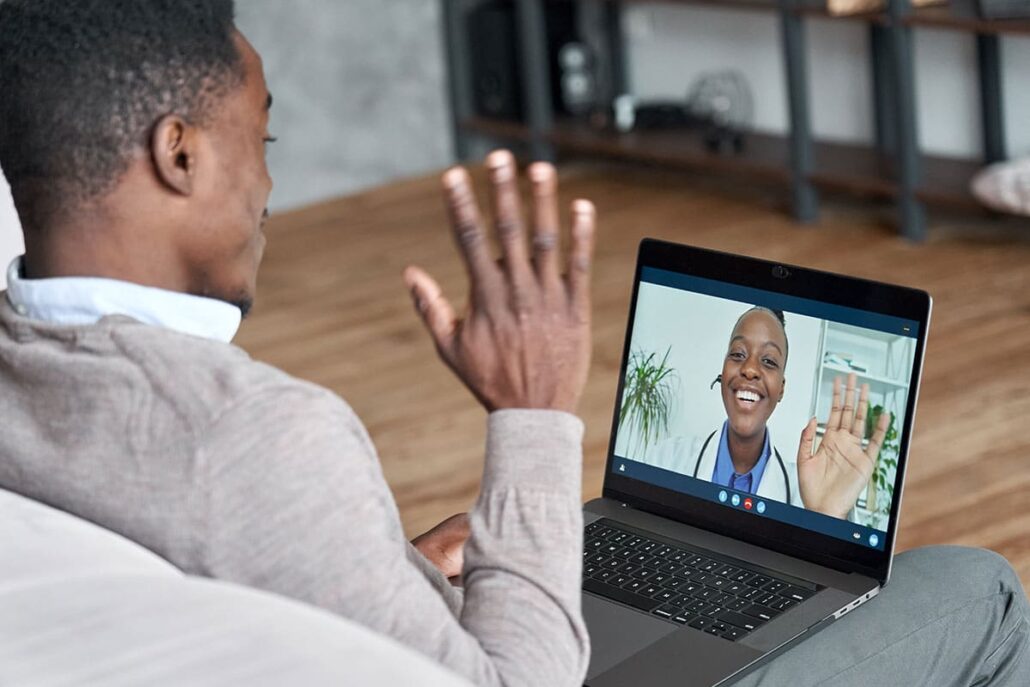Are you struggling with mental health or addiction issues? Has the COVID-19 pandemic made you hesitant to seek in-person treatment? Our teletherapy services offer you safe, convenient access to essential mental health care support from the comfort of your own home. Teletherapy is a virtual care option for many patients who would benefit from outpatient addiction treatment.
Table of Contents
Teletherapy for Addiction and Dual Diagnosis Treatment
COVID-19 has affected many individuals’ mental health. The stress of physical illness, social isolation, economic instability, and global uncertainty has led to a rise in depression, anxiety, and substance use. Unfortunately, many people who need help and support have not been able to access it due to the pandemic.
Virtual therapy connects people struggling with psychological or emotional instability with licensed therapists. Patients connect virtually with a clinician, support group, or counselor during telehealth sessions. Instead of in-person sessions, they participate in appointments via telephone, video conferencing, or text messaging.

How Can Virtual Therapy Support My Detox?
Detox should never be accomplished in a vacuum. Attempting to quit using drugs alone can be challenging, unbearable, and dangerous.
Eliminating the chemicals from your system is only one element in the detox process. While you have to clear your body of the harmful substances to regain mental and physical wellness, you must also reframe your thoughts, expectations, and behaviors to achieve and sustain sobriety. It’s crucial to obtain the support of a certified mental health professional as you move through recovery.
Psychotherapy is an essential tool that you can use during and after detox. Teletherapy supports your detox by providing you with the emotional support, accountability, and guidance that you need to progress through this rigorous time.
Even if you have already gone through the initial detox, telehealth provides a continuation of care. You can expand on the tools, knowledge, and skills that you have already gained so that you progress toward a life of fulfillment and sobriety.
How Does Telehealth Work for Rehab?
Telehealth allows rehab providers to learn more about you and the reasons that you’re seeking support. Once the areas of concern are addressed, customized treatment plans are developed that include individual therapy sessions as well as other strategies for helping you get through detox and recovery.
Group sessions may be held via online therapy platforms. You will also participate in one-on-one counseling sessions with a therapist. As you move along in your journey, you can step down your level of care. This generally means that your group and individual sessions will become less frequent for virtual care. You can work with your care provider to tailor the strategy for your needs and continually assess your progress.
Types of Treatments Offered Through Teletherapy
You might be surprised at the broad range of treatments that can be accomplished through teletherapy. In many cases, participating in virtual care isn’t much different than working with a therapist in person. In other situations, treatments are adapted to the long-distance environment.
Some of the addiction treatment options that mental health providers use during telehealth sessions include:
- Cognitive-behavioral therapy – A type of psychotherapy that aims to transform negative and unhealthy thoughts and behavior patterns into positive, constructive ones. Techniques involve awareness, self-exploration, goal-setting, and decision-making exercises.
- Dialectical behavior therapy – This style of psychotherapy teaches you how to accept your current situation and develop mindfulness so that you don’t get caught up in intrusive thoughts and harmful behavioral patterns.
- Talk therapy – Talking to a counselor or therapist about your addiction and mental health issues has been found effective for treating substance abuse. This type of therapy is flexible and depends on you, the therapist, and your treatment plan.
- Group therapy – Hearing the perspectives of others in your situation gives you additional resources for developing your own coping skills and feeling supported.
- Family therapy – In many cases, important loved ones can also work with a mental health professional so that they can understand your struggles and stand behind you on your journey.

Does Teletherapy Work for Addiction?
Access to adequate mental health care has been an increasing concern since the beginning of the pandemic. Therefore, funding has gone into researching and implementing efforts to improve the availability of this type of treatment.
Teletherapy is as effective as in-person therapy for mental health issues in most scenarios. Some patients, such as those who are tentative about meeting with a provider face to face, may find telehealth to be more satisfactory than in-person treatments.
Telehealth bridges gaps in accessibility to and comfort with addiction treatment. You may be more comfortable opening up with a group of your peers online than you would if you were in a circle with them. You might find that you have more time to think about your responses when your therapist asks you questions over the phone rather than in the office.
In a virtual care environment, patients have more privacy and flexibility than they would in a traditional setting. Our telehealth platforms have built-in security features, and HIPAA regulations apply in this setting as well as for office visits.
Virtual therapy is an excellent option if you’re comfortable using a phone, computer, or mobile device and have access to the internet. You will also need a comfortable, private environment from which to participate in sessions.
If you require inpatient rehab and 24/7 monitoring, telehealth may not be the right choice for you. However, if you are a strong candidate for outpatient addiction services, you can achieve your goals through our virtual care option.
Conclusion
At Long Island Interventions, we understand how important it is to feel comfortable and confident with your level of care. That’s why we have made it easier than ever to get help for addiction or a co-occurring mental health disorder. Contact us to set up an appointment today.
FAQ
What is the difference between Telehealth and Teletherapy?

